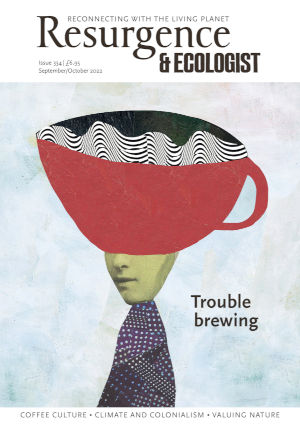A lot of lip service is paid to learning from Indigenous knowledge, but frequently this knowledge continues to be regarded as at best a hint, a possibility, something needing to be ‘proved’ by ‘our’ science. In the west we’re still all too often in the situation of 19th-century European naturalists, who wouldn’t accept – as the Aboriginal people tried again and again to explain to them – that platypuses and echidnas laid eggs. William Caldwell was responsible for the killing of thousands of these animals to ‘prove’ this fact, and credited as the ‘discoverer’ as a result.
That was one reason why I found the mere existence of The First Astronomers so attractive. Knowing that one of the hardest of the hard sciences was taking Indigenous knowledge, respecting, using and learning from it was exciting. It reflects a broader rethinking of the human past (as recently magnificently surveyed in The Dawn of Everything: A New History of Humanity by David Wengrow and the late, great David Graeber): the growing realisation that other peoples in other times were at least as smart, inventive and innovative as we in the west are today. They all did science – used empirical observation, experiment and collected knowledge to survive and thrive – albeit in ways we often struggle to recognise.
The author of The First Astronomers, Duane Hamacher, completed a PhD in Indigenous Studies, and has worked ‘for’ (so nice to see that word in his explanation) the Meriam people of the eastern Torres Strait Islands to document their knowledge and map it onto western understandings. He credits as key sources six Meriam Knowledge Holders, and shares their words.
But the book expands across the globe. The Maori and other Pacific peoples – spectacular navigators across at least 2 million square kilometres of ocean, likely also discoverers of Antarctica – are an obvious source, and it is great to learn the story of the restoring to the light of a 400-page manuscript record begun in 1898 of Maori star knowledge that led to Matariki, the Indigenous new year celebration marked by the dawn rising of the Pleiades star cluster, becoming a New Zealand national holiday.
But this work covers many other places where Indigenous knowledge has been able to survive colonial destruction, from US First Nations to Africa and into the Arctic Circle. Many key informants – and pioneers – are scholars from Indigenous backgrounds who’ve chosen to join the mainstream scientific world, bringing community knowledge with them. In the US and Canada, Hamacher tells us, this is known from the Mi'kmaw language of eastern Canada and Maine as etuaptmumsk, ‘two-eyed seeing’.
Expensive, high-tech equipment is being pointed in directions suggested by Indigenous science and taking forward all of our understandings of the universe in which we live. Almost incidentally, that’s teaching us the effectiveness of oral transmission of knowledge: the landing of a meteorite in what is now the Central Desert of the Northern Territory was remembered for 4,200 years, and Indigenous scientists long ago deduced facts western science has only just worked out, such as the meteorite origins of the Wolfe Creek Crater in Western Australia, now thought to have been formed about 120,000 years ago.
It is not surprising that, when the stars were far less obscured than they are today as we profligately pollute the heavens with wasted energy, when people had the time to sit and gaze, to wonder and tell stories underneath such magnificent arrays, they understood in deep ways what was happening in their universe. And no doubt many – as Hamacher notes in the role of the Zugubau Mabaig in the western Torres Strait Islands – had specialists who had a social duty to watch the heavens, sitting on high ground to watch the changing positions of the sun, moon and stars.
The more we understand about the past, the more we come to recognise how limited – and damaged – is our societal understanding today, delivering a corrective to continuing modernist scientific hubris. Many fields could learn from astronomy.






